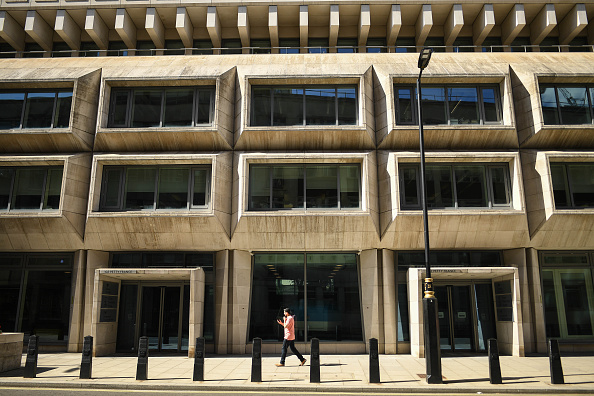Our judicial system is failing as courts and the profession lose their lustre

As we finally emerge from the worst of the pandemic, things like the Nightingale Courts might be a fading memory. Much like the Nightingale Hospitals, they were set up to deal with urgent cases and individuals who couldn’t have their needs addressed remotely. In the case of the courts, they were a genuine commitment to keep on providing justice for victims of crime during the pandemic.
The courts were wound down at the end of last month. On one hand, they were tokens of the sheer force of justice in the face of crisis; on the other, of yet more poor spending decisions on the government’s part.
The government sold several court buildings over the past years, getting a short-term financial gain that was reinvested to fund the expensive Nightingale courts. From when they were launched in July 2020 to January 2022, they have cost £34m. Some were more expensive than others: in London, three courtrooms at Prospero House in the City cost more than £6.8m. In Leeds, two courtrooms at Cloth Hall Court were set up with £810,000. Many were hosted in hotels or venues that had to be completely readapted to fit a courtroom.
As cases were processed through these makeshift courts, one issue affecting the criminal bar was becoming clearer and clearer: few barristers were available, as less and less go into the profession. The number of pupils starting out in this sector has decreased by almost 30 per cent in a period of 30 years, according to the Bar Standards Board.
While backlogs in the NHS have been the most acute pressure point in public services, our courts are groaning under the weight of the cases coming their way. The number of sitting days in courts in England was cut by 20 per cent in 2019 as a result of a scarcity of barristers and judges available.
The truth is simple: being a criminal lawyer is no longer considered an appealing career path in England. Those with the ability and inclination to do so are more likely to pursue more lucrative options. The pay difference between a corporate lawyer and a criminal barrister is stark, with starting salaries of up to £60,000 at London firms compared to under £20,000 for a pupil at a chambers in London. The number of pupillages available for ambitious graduates has also shrunk, so while it is as competitive – if not more – than top City firms, the remuneration has stayed stubbornly low. Almost 40 per cent of barristers are now over 50-years-old.
The backlog is in some senses a self-fulfilling prophecy.
In 2010, the average length of time from offence to completion was 391 days. A staggering wait in itself. Now, it is 511 days.
Victims are losing faith in the system and with witnesses’ fading memories, cases become even harder to prosecute. Simon Spence, QC at Red Lion Chambers, had a case in which the main eye witness had moved away and was untraceable. He persuaded the court to allow him to read the evidence under hearsay provisions, but it had much less impact and “as a result the jury could not agree on its verdict”, he says.
Within Whitehall, the backlog has been the source of much bickering. But unlike the NHS, which we all assume we will need at some point, people hope they won’t need to turn to the courts, so it is often only those who work within the system – or have been affected by it – leading the outcry.
On a more basic level, the physical state of many courts hardly inspires confidence. Michelle Heeley QC, Leader of the Midlands Circuit and Barrister at No5 Barristers’ Chambers, said some of her colleagues were leaving the system because of the working conditions, with court estates plagued with basic problems like water leaks. “We need to take back pride in our legal system, investing in the people and the infrastructure”, she said.
Presumably, the appetite for ensuring that justice is served and victims are protected should be of any political party, no matter where they lean on the spectrum. Yet, the criminal system, like the NHS or the education system, is an expensive cost to the public purse, but one harder to sell, as not everyone has direct experience of it, according to Spence. And ultimately policies to reorganise and revamp this complex apparatus get entangled and fuzzy.
A democracy is seldom healthy without a fully functioning judicial system. “It’s time that government realises the system is at a breaking point. It’s been under strain for a long time, but now is in danger of collapse”, concludes Spence.